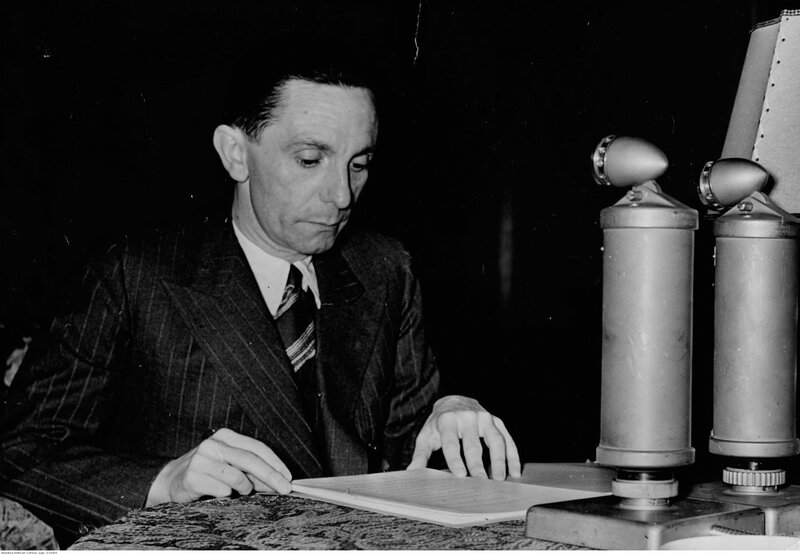In 1924 Joseph Goebbels, an unfulfilled and unemployed author, got interested with a radical, anti-Semite program of the National Socialist German Workers’ Party (NSDAP), which leader, Adolf Hitler, was just on trial for the 1923, November Beer Hall Putsch. Goebbels was fascinated with Hitler himself and the fondness quickly grew to unconditional devotion. Certain that Hitler was fulfilling “God’s plan”, Joseph joined his party and took it upon himself to prepare pamphlets, publish newspapers and take part in party’s gatherings, proving his unprecedented orator skills.
“We will work on people for so long, that they must eventually cave”
A breakthrough in Goebbels’ career was, without doubt, the moment he became promoted to Gauleiter of the NSDAP (the party leader of a regional branch of the Nazi Party – translator’s note) in Berlin, in 1926. He then managed to popularise the main ideas of the Nazi Party in the “red” capital of Germany, where the left-wing parties originally had more support. Even though, two years later the NSDAP failed to get much support in the parliamentary elections, Goebbels managed to become an MP. Since that moment, he had immunity and a free ride ticket (allowing him to use public transport without charge – editor’s note), which allowed him to take part in party gatherings all across the country. In the last years of existence of the Weimar Republic, during a time of great crisis for the country, political arguments became very brutal. Fights between parties’ militias and political assassinations became an everyday reality. Goebbels felt just in place in this atmosphere: both his public speeches and published articles tilted towards more radical way of thinking. He couldn’t control his pure hatred towards Jews and left-wing parties.
Finally in power
When in 1933 Hitler was forming his government, Goebbels, the head of propaganda for the NSDAP, became a minister of propaganda. The Nazi Party took control not only of the parliament or Reichstag, but also of the media. Goebbels was clear in his message to the directors of Berlin radio stations: “We won’t pretend: the radio belongs to us and to no one else! We will make the radio a tool for our cause and no other values will be presented by it.” People with “inappropriate” views (socialists, Communists, pacifists) or of “inappropriate” origin (Jews) were removed from radio stations. The same was done to the press. Opposition newspapers were eradicated and their editors were sent to concentration camps.
Propaganda as a tool for indoctrination
The German press received instructions from the ministry, which information to publish (and how to comment on them) and which to omit. From that moment, Goebbels had full control over all the public means of expression, which became propaganda tools. With such tools, it was easy to fuel the hatred of the German society towards the internal and external enemies of the Third Reich: Jews; Communists; socialists; Catholics; Romani; Poles; Western allies; and the USSR. To vilify them as much as possible, the ministry of propaganda used the radio, film, literature and art, so as no one would even dare question their credibility. Following the outbreak of the Second World War, Goebbels forbid the German society from listening to foreign broadcasts or repeating them, under the threat of death. Therefore, the Nazi Germany was a country, which had the monopoly on state-wide news; there was no alternative.
